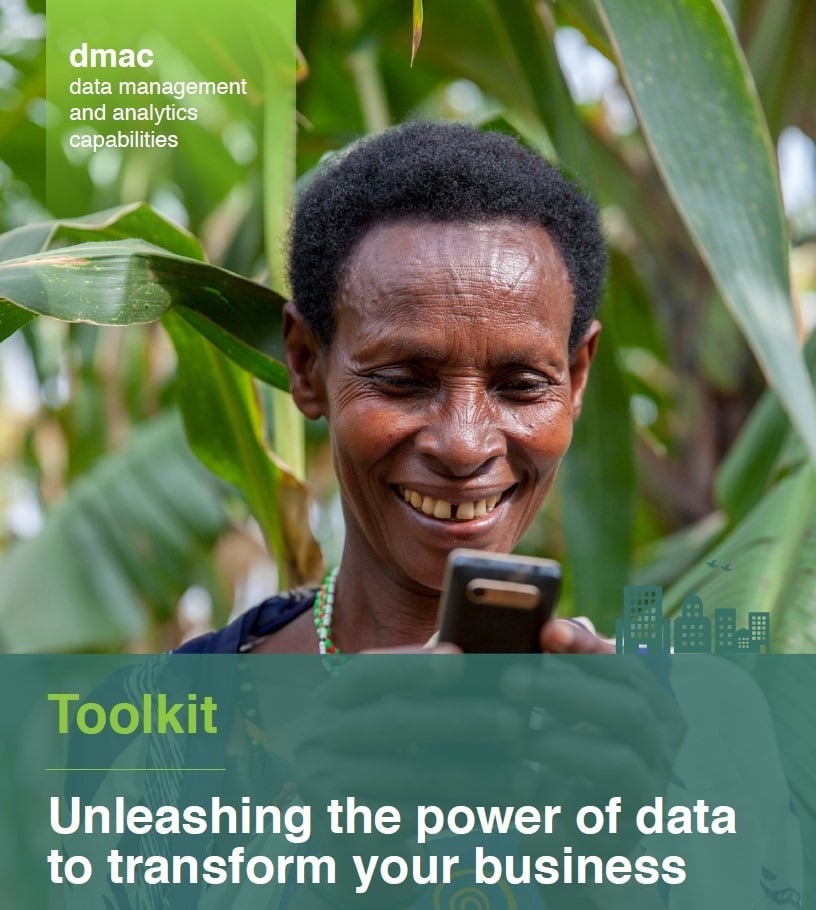
Market facilitation (M4P) is an approach to promote systemic change—change that goes beyond individual players and that is relevant to the wider environment, affecting many. Market systems development requires that organisations play a facilitating role. Standing outside of the market system, facilitators work with different players within the system, to make it work more effectively. Their essential role is active and catalytic, to enable others to do rather than do themselves—stimulating changes in a market system without becoming part of it.
Understanding this concept and applying it in market systems development initiatives is no mean feat. Market facilitators, donors and practitioners must draw from a wide range of tools and techniques to put market facilitation into practice. Developing and maintaining partnerships, managing risks, deploying flexible intervention tactics, establishing a measurement system and communicating effectively are all useful learning points for those working in this field. Knowing when to exit an intervention is just as critical as identifying and selecting the right partners to work with and understanding these complexities can have an impact on the effectiveness of interventions. Market facilitation as a practice is more of an art than a science, directed by principles rather than lists of actions, which can make it difficult to translate the theory into practice.
There is limited evidence from the field on how to apply this approach in a way that ensures interventions are both scalable and sustainable. In June 2015, FSD Africa commissioned the Springfield Centre to produce: a) one
comprehensive case study of FSD Kenya—a financial market facilitation agency in Nairobi, Kenya; and b) six minicase studies of financial market facilitation interventions from the wider FSD Network, by the FinMark Trust, FSD Kenya, FSD Tanzania and FSD Zambia. The aim of this process was to build the knowledge base around the art of market facilitation in the field. These case studies revealed a lot of insights about effective market facilitation, the challenges the Financial Sector Deepening (FSD) Network faced while designing and delivering interventions using the M4P approach and the lessons they have learned so far.
The M4P synthesis paper (this publication) explores the art of market facilitation in action through the lens of the FSD network and synthesises learnings gained from these case studies to build understanding around the M4P approach. The paper examines the wider lessons and challenges that emerge for organisations addressing the dilemmas of developing financial markets for the poor and how they differ significantly from other conventional approaches.

With more data being created at a faster rate than ever before, it can be hard for financial service providers (FSPs) to know what to do with the plethora of data available to them. FSPs are capturing large amounts of data on their internal systems and also have access to external data – as a result of improved connectivity and increasing smartphone penetration, as well as through publicly available external data (e.g. national surveys).
However, many FSPs are not making full use of this data as they may not understand its full potential, have information overload, inefficient processes and systems, and think it is expensive to make use of data. The toolkit aims to help FSPs understand the different data sources available to them and how to use them effectively to transform their business.
Although primarily aimed at FSPs, the toolkit may also be of use and interest to those who provide services to FSPs in their respective markets (such as data management and research firms) and other organisations wanting to implement programmes that encourage FSPs to make more and better use of data.
The toolkit draws on the valuable learning gained through the Data Management and Analytics Capabilities (DMAC) programme that uses data-driven evidence to help FSPs in sub-Saharan Africa to design inclusive and affordable financial products and services that respond to the needs of unserved and under-served adults, with a particular focus on women and youth.

This case study looks at FSD Tanzania’s (FSDT) initiative to establish an effective alternative investment channel of the Dar es Salaam Stock Exchange (DSE) for micro, small and medium enterprises (MSME), the Enterprise Growth Market (EGM). The EGM aims to supply long-term equity capital for growth oriented SMEs in various areas such as agribusiness, agro processing, mining, tourism, manufacturing, banking and financial services.
FSDT sought to catalyse investment finance in MSMEs through the DSE’s EGM. Providing approximately USD1,360,000 to CMSA and DSE in 2011, FSDT supported the operationalisation of the EGM and stimulated take up by firms and investors. This work included public awareness campaigns, providing technical support to MSMEs and nominated advisers and building the regulator’s ability to supervise the EGM segment.
The establishment of the EGM has demonstrated that the stock exchange can provide an investment finance channel that’s relevant to medium-sized companies that do not meet the requirements to list on the main market segment. The potential for growth remains huge due to the large number of MSMEs in Tanzania but will rely on ongoing information dissemination, awareness raising and support to firms, in order to increase both the number and type of companies listing, and attract more investors.
All stakeholders in the EGM have stated that MSMEs and ‘well-researched start-ups’ are worthy of, and able to handle, increased investment, so long as they receive additional technical assistance. The CMSA and DSE have shown support for the EGM by changing regulations and practices. Members of both agencies report that “we have more capacity and increased confidence to supervise and run the EGM. But it’s a nascent market and we will continue to need technical and financial support”.


